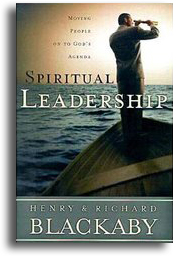Tackling the Giants

It’s a classic story of the little guy taking on the big guy and winning (1 Sam 17). Obviously, David was skilled with his sling, having already killed a lion and a bear during the course of his shepherding duties. The giant, Goliath, was a seasoned warrior. Yet, when the rock struck a knock-out blow on Goliath’s forehead, it was not just the little guy taking out the big guy. Even before he had taken a stone out of his bag, David boldly acknowledged that it would be the Lord who would give him victory over Goliath (1 Sam 17:45-47).
Many times, I feel pretty small as I face significant life and ministry challenges. The Goliath-sized challenges are much bigger than me. Yet, my all-powerful God is with me. The worship song, “Our God,” by Chris Tomlin captures this reality:
Our God is greater, our God is stronger
God You are higher than any other
Our God is Healer, awesome and power
Our God, Our God...
Our God is greater, our God is stronger
God You are higher than any other
Our God is Healer, awesome and power
Our God, Our God...
And if Our God is for us, then who could ever stop us
And if our God is with us, then what can stand against?
And if Our God is for us, then who could ever stop us
And if our God is with us, then what can stand against?
What can stand against?
Ready to face the next challenge with this awesome God at your side?

 Samuel had anointed David as the next king of Israel (
Samuel had anointed David as the next king of Israel ( “Spiritual leadership is moving people unto God’s agenda” (p. 36). In their 2011 expanded revision of Spiritual Leadership, Henry and Richard Blackaby have done a masterful job of calling Christian leaders to refocus on God and His agenda while giving many practical tools for helping them move people according to God’s leading. They have integrated Scripture and contemporary ideas about leadership throughout the book while bringing their ideas to life through many engaging stories. Despite a few underlying assumptions that some readers might find unsettling, the book is a thought-provoking and practical read for both seasoned and emerging leaders alike.
“Spiritual leadership is moving people unto God’s agenda” (p. 36). In their 2011 expanded revision of Spiritual Leadership, Henry and Richard Blackaby have done a masterful job of calling Christian leaders to refocus on God and His agenda while giving many practical tools for helping them move people according to God’s leading. They have integrated Scripture and contemporary ideas about leadership throughout the book while bringing their ideas to life through many engaging stories. Despite a few underlying assumptions that some readers might find unsettling, the book is a thought-provoking and practical read for both seasoned and emerging leaders alike.